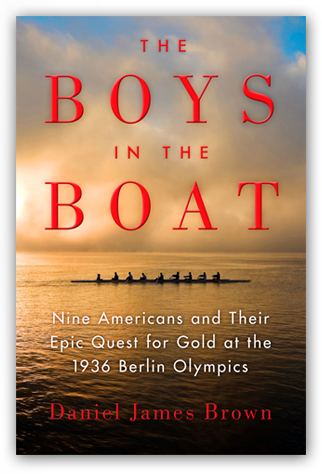
Need More Colors in the Rainbow: Jessica Jones and LGBTQ Representation
Warning: SPOILERS for the entire first season of Marvel’s Jessica Jones.
If you’ve finished the entire first season of Marvel’s Jessica Jones: are you okay? Have you remained hydrated? Did you take yoga breaks in between episodes? Blare some Enya? Practice your rhythmic breathing? If not, soothe yourself now before you, with fistfulls of napkins and waffles, wind up sob-screaming at an innocent IHOP waitress who just doesn’t seem to understand that NO you do not want the grape jelly right now because it is purple and GET. IT. AWAY.
I speak hypothetically.
Jessica Jones (indulge me in ditching the wayward “Marvel’s“) is a lot of things: the second-entry into Marvel’s Netflix plan, the same plan’s only female-led entry, a rousing success for Krysten Ritter, the most emotionally-taxing bingewatch I’ve ever undergone, and the source of my nightmares.
It’s also the first Marvel Cinematic Universe (MCU) property to feature a major queer character (in Carrie-Anne Moss’s Jeri Hogarth) and the second to feature a visibly queer character at all (beat out by Agents of S.H.I.E.L.D. just two months ago).
Jessica Jones, however, does nothing in half-measures. By my last count, the show features seven queer characters: one major (Jeri), two recurring (Wendy Ross-Hogarth, Pam), and four minor (Sissy Garcia, Zack, Justin Beaudoin, and Justin Beaudoin’s unnamed husband).
After finishing the season, I find myself both happy for the quantity of queer representation on the show, but also even more desperate for representation in other MCU properties.
Jessica Jones is a show that’s dark and complicated. It’s swimming—drowning, even—in brutal topics and moral complexity. There’s no black-and-white, just many shades of grey. And people of all backgrounds should get to occupy all of those shades.
Unfortunately, I am a bit disappointed at where the show does leave its queer characters: in either exceedingly dark shades of grey or dead.
Two of the show’s most sympathetic queer characters are the women on either sides of Jeri Hogarth—Wendy and Pam—and my use of “most sympathetic” underscores how morally murky the show gets. Wendy blackmails Jeri (I can’t say I blame her) and Pam is the Other Woman in this relationship (though she’s quick to turn on Jeri’s shenanigans).
Wendy gets abused by both Jessica Jones and Kilgrave and winds up with her head split by a table; Pam ends up in jail for uniting Wendy with that table (it was self-defense from a mind-controlled Wendy).
The minor queer characters don’t fare better. Sissy Garcia is a violent, predatory butch lesbian. Justin Beaudoin gets mind-controlled by Kilgrave and is then framed for double-murder—one of the victims is his husband. Zack escapes the show unscathed, but that’s mostly because he’s totally irrelevant—so much so that I imagine most viewers of the show have no idea who I’m talking about. Hint: He’s Trish’s assistant.
And that leaves Jeri, one of the most fascinating characters on this show.
In the final episode of the season, Jessica describes Jeri (to Jeri) as “a sack of dark, oozing shit in an expensive suit […] which makes you the best shark in town.”
In practice, viewers see way more of the “oozing shit in an expensive suit” than they do the “best shark in town” part. Jeri has small moments of savvy throughout the show, but nothing that manages to eclipse the colossal stupidity that was freeing Kilgrave. She knows that Kilgrave mind-controlled a college girl, held her hostage, raped her, and forced her to murder her parents. She knows that he basically forced a surgeon to perform vivisection on an ambulance driver. She knows that enough to want to keep the aborted fetus carrying his DNA. And yet.
If the show’s trying to sell her as brilliant, calculated, and logical, her decision to free Kilgrave wholesale unraveled that.
Throughout the series, I found myself waiting for the show to humanize her. Not to excuse her actions or even make her sympathetic, but to show us more about how she came to be. Why did her marriage with Wendy fall apart? What did Pam see in Jeri? Is this mic even on?
If she was supposed to come off as a vaguely incompetent monster, I wish we could have seen more of why. If she wasn’t, well, whoops, that’s what we got.
Looking at the bleak landscape of jailed, dead, and monstrous queer characters (this sounds like the saddest take on F**k, Marry, Kill ever) before me, I struggle to recommend this to queer friends as much as I’d like to. Tired of dead or tragic lesbians? Well, this show is chock full. Want to feel better represented here than the rest of the MCU? If you’re looking for quantity? Sure. Anything else? Not really.
Spoilers for season two of Marvel’s Agents of S.H.I.E.L.D. and Marvel’s Daredevil ahead
Even the faint sparks of queer representation throughout the MCU fall into these same unfortunate categories. Victoria Hand and her girlfriend Isabelle are queer women in the comics. In Marvel’s Agents of S.H.I.E.L.D., Victoria Hand and an Isabel are never confirmed to be queer, but they are both murdered. Daredevil‘s queer-coded character Wesley is a villain—who might be in love with his boss—that winds up murdered. Iron Man 2 villain Justin Hammer, in the Thor: The Dark World Bluray/DVD one-shot “All Hail the King,” is shown to be “prison gay.”
It’s not that I don’t want villainous or morally dark queer characters; I do. I just also want us to get to embody the (complex) heroism that Trish, Malcolm, and Jessica had this season. And for us to get to embody villains and corpses less—especially the nameless ones.
Allowing queer characters to exist in all shades of the human experience requires showing them as heroes too. Something that Jessica Jones, and the MCU at large, has failed to do.















